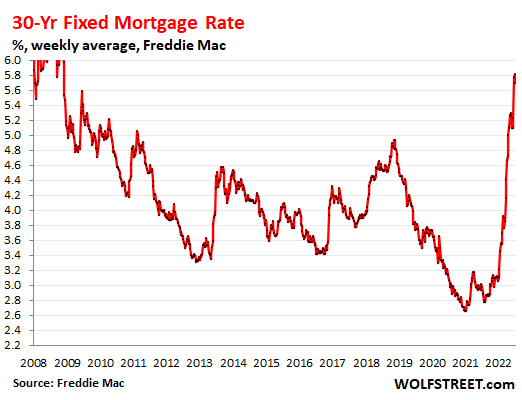Landlord Insurance Coverage: What Does Landlord Insurance Cover?

Investing in rental properties can be a great way to make money in both the short term and the long run. However, it comes with multiple risks. Having the right landlord insurance coverage can help protect you and your property against many of the downsides associated with owning and managing an income property.
In this article, we will provide a comprehensive overview of what landlord insurance policy typically covers as well as what it does not cover. We will explain why getting the right coverage is so important for real estate investors. We will conclude by giving you actionable tips on how to choose the right company and the right policy for your investment.
Table of Contents
- What Is Landlord Insurance?
- What Does Landlord Insurance Cover?
- Additional Rental Property Insurance Coverages
- What Does Landlord Insurance Not Cover?
- The Importance of Rental Property Insurance
- Tips for Choosing the Right Insurance for Landlords
- Getting Started with the Best Insurance Policy
What Is Landlord Insurance?
This is a special type of insurance that offers coverage to rental properties and their owners. That’s why it is also commonly referred to as rental property insurance.
This is different from homeowners insurance, which is meant to protect primary residences and homeowners rather than investors. It is also different from Airbnb insurance, which is designed to meet the needs of short-term rentals and hosts in specific.
Landlord insurance coverage usually includes damages to the actual property, personal belongings such as furnishings, outside structures, liability protection, legal expenses, and even loss of rental income.
While having coverage for an income property is not legally required, it is a must for landlords in order to protect their investments and themselves against the negative impact of natural disasters as well as man-made accidents.
What Does Landlord Insurance Cover?

Here are the most common items that insurance for landlords covers
When looking for the best policy for landlords on the market, it is important to understand what it typically covers.
The common landlord insurance coverage includes:
Property Damage Coverage
First and foremost, this insurance covers physical damage to the structure of the house that occurs due to weather or natural phenomena such as fires, windstorms, hail, hurricanes, tornadoes, and others.
Moreover, it protects against the loss or damage of the landlord’s personal property available in the home when an event strikes including furniture, appliances, and tools.
The best landlord insurance policies also cover damages to outside structures such as garages, sheds, patios, swimming pools, boats, and others.
Liability Protection
This part of the landlord insurance coverage is meant to pay for medical expenses associated with anyone getting physically hurt or injured on the rental property. This includes tenants, their guests, maintenance staff, and contractors.
Tenants and their guests can easily claim that an injury occurred because the house has not been properly maintained. Similarly, handymen can hurt themselves while performing maintenance work on the house.
In these cases, medical bills can reach hundreds of thousands of dollars, and you don’t want to have to pay those out of your pocket. Thus, having solid landlord liability insurance is crucial.
Loss of Rental Income
This insurance also protects against the loss of rental income as a result of a home being uninhabitable as a result of any included events.
This means that you don’t have to have zero income while working on fixing your rental after a devastating fire or flood. You can continue benefiting from an ongoing stream of income from the insurance company.
Legal Expenses
As part of the liability protection that it provides, investment property insurance typically covers legal fees in case anyone gets injured while on site.
So, in addition to medical expenses, your insurance will also cover legal expenses should a tenant or a contractor sue you for bodily harm.
Additional Rental Property Insurance Coverages
Of course, not all landlord insurance policies are the same. While they all provide the common coverages and cases listed above, there are significant differences in the additional coverage that various companies offer. In most cases, landlords have the option to choose what extra coverage they want.
The most common optional coverages include:
Vandalism and Theft Protection
While these items are not usually covered by this type of insurance, you can choose to get insured for them too.
The vandalism and theft clauses protect against property damage and loss caused by violent acts and burglary.
Whether you choose to opt in for this additional coverage depends entirely on your personal situation. You have to decide based on your market, your distance from the home, the occupancy rate, and other factors.
Having landlord policy insurance that covers vandalism and theft is particularly important for properties that stay vacant for long periods of time and that are located in turmoil locations.
Natural Disaster Coverage
Many rental property insurances do not protect against certain natural phenomena such as floods and earthquakes. Instead, they usually cover fires, lightnings, storms, and hail.
If you invest in a market prone to floods and earthquakes, it’s obligatory to get this extra coverage. The small premium that you pay will be more than compensated for should a major natural disaster strike and damage or destroy your property or belongings.
What Does Landlord Insurance Not Cover?
Landlord insurance coverage is quite comprehensive, providing protection in a wide range of natural and man-made disasters. However, this type of protection is by no means all-inclusive.
Here are the main items that remain outside the coverage of insurance for rental properties:
Tenant Personal Belongings
It is important to know that while this covers the landlord’s personal items located on the property (such as furnishings and tools), it doesn’t cover the tenant’s personal belongings like furniture, appliances, clothes, valuables, and others.
Instead, the personal belongings of the tenant are included in the renter insurance. Many landlords decide to require tenants to have this type of insurance to avoid problems should a covered event happen.
What Does Renter Insurance Cover?
Typically, renters insurance covers:
- Furniture
- Appliances and electronics
- Clothing
- Sports goods
- Art, jewelry, and other valuables
- Personal liability
Wear and Tear
In addition, no matter how good it is, investment property insurance does not cover normal wear and tear associated with living in a house or renting it out. This means that the insurer will not pay for repainting walls, changing kitchen cabinets, or maintaining HVAC systems or appliances.
Some of these expenses might be covered by a home warranty.
Certain Acts of Negligence
Last but not least, insurance for rental properties does not cover damage caused by negligence on behalf of the landlord or the tenant or intentional damage by renters.
For instance, you cannot postpone the maintenance of the air conditioner and expect the insurance company to cover the cost of replacement when it breaks.
The Importance of Rental Property Insurance
Getting the right landlord insurance policy coverage is a crucial element in the process of becoming a real estate investor. It can help you save thousands of dollars in case of calamity and ensure that your rental business generates positive cash flow and strong return on investment under all circumstances.
The main benefits of having rental property insurance are:
- Having your house protected in case of natural disasters, vandalism, and theft
- Having your personal belongings protected in case of natural and man-made calamities
- Avoiding costly medical expenses and legal fees in case of bodily injury to tenants, guests, and contractors
- Being able to retain a profitable income property under various unfavorable circumstances
Tips for Choosing the Right Insurance for Landlords
Landlord insurance policies are as diverse as any other aspect of the exciting world of real estate investing.
So, what insurance does a landlord need?
For optimal results and to strike the best balance between protection and cost, it’s important to choose the right company and the right policy for your specific property and your own needs as a rental business owner.
Here are the main factors to consider when choosing the right landlord insurance coverage:
Assessing Home Value
One of the main determinants of the cost of real estate investment insurance is the value of the home and the covered external structures and personal belongings. Your policy should accurately reflect the current market value of your property.
If the house is undervalued, you will pay a lower premium, but you will not receive full coverage in case anything happens. If, on the other hand, your property is overvalued, you will end up paying a lot on your policy.
Obtaining Multiple Quotes
When selecting the best protection, you need to shop around, check out different companies, and talk to a few insurance brokers. Each insurance company has a different pricing structure for rental property policies, and you need to do due diligence to find the best one for your particular case.
Get a number of quotes and choose the right one.
Customizing Coverage
As mentioned above, there isn’t one-size-fit-all insurance for landlords. Each investor has to choose what coverage they want based on their property’s status, the available furnishings, the market in terms of natural disasters and crime rates, and their own risk tolerance.
Once you have short-listed a few companies, you need to talk to them and discuss the customization of the landlord insurance policy to your needs. In this way, you will be able to obtain the right quote.
Getting Started with the Best Insurance Policy
Having adequate landlord insurance coverage is key for running a well-protected, profitable, and successful rental property business. It can protect you and your property against damage, theft, personal liability, and rental income loss in a range of natural and man-made disasters. However, since not all policies are uniform, you should pay attention to your property’s features, value, personal belongings, and location when choosing the best fir for your needs.


